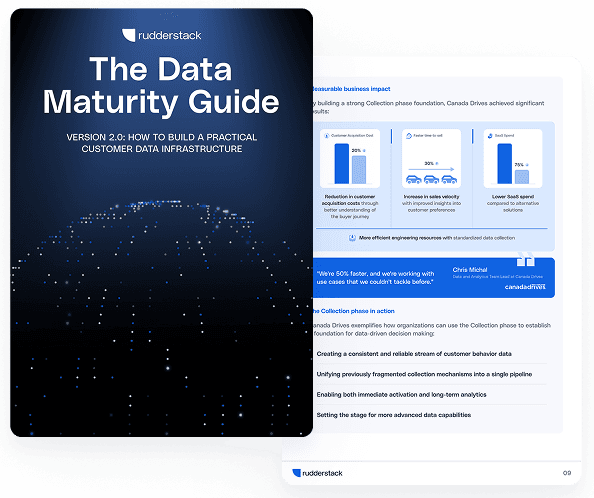Announcing Delta Lake and Data Lake Destinations on RudderStack

We’re excited to announce that Rudderstack now supports Delta Lake as a destination in addition to data lakes on Amazon S3, Azure, and Google Cloud Storage.
Data lakes are storage areas for raw data that make the data readily available for people to use when they need it. The data in data lakes should be raw, easily accessible, and secure. From a customer data perspective, data lakes are a very powerful option because of their flexibility and ability to handle high volumes of information.
Last week we wrote a post on how the data lakehouse enhances the customer data stack. As a Lakehouse, Databricks’ Delta Lake is an architecture that builds on top of the data lake concept and enhances it with functionality commonly found in database systems. It lets users store structured, unstructured, and semi-structured data. This Delta Lake was created in part to make sure that users never lose data during ETL and other event processing. It allows companies to scale and supports a variety of capabilities such as ACID transactions, scalable metadata management, schema enforcement, and more.
Today, RudderStack customers are using our tool to seamlessly send event data. Click here to access the Warehouse Destinations section of our support documents, where users can learn more about how to send event data from RudderStack to their Data Lake and Delta Lake destinations.
Published:
January 27, 2022







